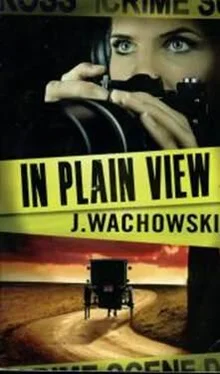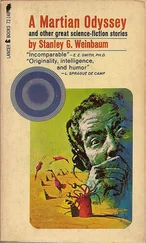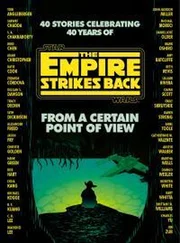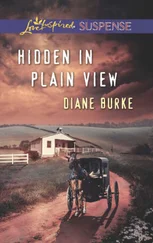“What?” She blinked back into herself.
“Do you or your father own a pair of long-range binoculars?”
“No. No,” she said quickly. “I think maybe Mrs. Peachy owns a pair. Her grandson gave them to her for watching birds on the feeder. The bad leg keeps her inside most days.”
“Ah, right. Does your dad have people helping him with the farm, since Tom left?”
“Of course. Always.”
That didn’t narrow down who might have been watching when I took the photo of Tom coming down from the tree. Nothing like real life to keep the story messy. “How could I get your dad to talk to me, Rachel?”
“Heaven only knows,” she answered quietly. “I don’t. I must go now.”
Those last minutes of an interview are often awkward. The camera seems to re-materialize. Everyone becomes self-conscious. Most people fumble their farewells. Some shake my hand and ask me to call; some duck and cover. Rachel ran.
With a quick goodbye, she picked up her clunky boots and walked away. She wouldn’t accept a ride, even halfway. Someone was meeting her in the Walmart parking lot, she knew a short cut, needed to walk. In other words, leave me alone.
I didn’t push.
She picked her way across the traffic, carrying the clothes of her other life under her arm. The sun was low and sinking fast. I wondered if she’d make it home before dark.
Ainsley wandered out across the parking lot. “She gone?”
“Yeah.” I sat down and made some notes for later.
Photos: iso Rachel boots? (Juxta. Firehouse boots.)
Need school house.
Airport pick-ups? (Stock/news library might carry.)
Ainsley checked the images before breaking down the tripod.
“How’d that last bit look? Enough light?” I asked. “Did she stay in frame?”
“Of course I kept her in frame,” he snorted indignantly.
“What about after you left?”
“After I left?” Ainsley repeated. Slowly. “I turned the camera off when I left.”
“You what? ” I felt a sick sort of lurch, the kind you get on a downhill.
“I thought you wanted privacy.”
“From you, you bonehead! Not the camera. Never, never from the camera.”
I sank down onto the picnic bench and tried to give myself the pep talk. It’s not brain surgery. It’s only television. Unfortunately, the you are fucked voice was too loud for me to hear anything reassuring.
“Sorry,” Ainsley offered, sinking down next to me. “I misunderstood. I didn’t think she’d want to talk on camera if she didn’t want to talk in front of me.”
“Not again, that’s for sure.”
“What did we lose?”
At least he said “we.” “Oh, stuff like she was pretty much sleeping with Tom Jost and if she’d agreed to marry him, he wouldn’t have killed himself.”
“No way.” He was so full of Disney-earnest shock, the sick feeling in my stomach doubled. “She looks so innocent.”
“She is innocent.” I couldn’t decide whether to laugh or punch him. This business makes it very clear: what you think you know, based on what you think you see, tells more about who you are, than what you saw.
“Listen up, College Boy.” I rolled my head and cracked off the tension building in my right cross. “That was one. You get to three, I tell Uncle Richie you and I are breaking up, and you are going back to baby J-school classes. Got it?” Journalism school would beat the impulse for privacy out of him.
“Yeah. I got it.”
“Good. Here’s rule numero uno: never, ever turn the camera off. You hear me? You’re walking backward into traffic or running for your life-I don’t give a shit-you keep taking pictures. You work for me, you will die with your finger on the trigger. Are we clear?”
“Clear.” He didn’t sound too upset. Either Ainsley was one of those kids who didn’t let much bother him or he got yelled at so often, he was immune. “Anything else?”
“You know the old saying, ‘seeing is believing’?”
“Yeah, sure.”
“Well, here’s a clue, it means believing as in faith.”
Ainsley frowned. “I don’t follow you.”
“What you see is you, College. Whether you’re looking in a mirror, or at some Amish girl-next-door, whatever you see, describes the inside of you. ”
He took the hint, pulled in his chin, packed the equipment without a word and drove home the same way. Every so often he’d give me a sideways glare.
He was mulling it over.
My whole career has been about making pictures that would break enough hearts to change the world. All I ever saw were tragedies.
7:12:04 p.m.
Tonya rushed out to meet me as soon as Ainsley pulled into the driveway back at the house. As much as you can rush in heels.
“Hot date?” I asked, getting out of the truck.
“We’ll see. Tell you about it next week.” She smiled toward Ainsley but he didn’t bite. “Baby’s out back.” She tossed her evening-knapsack into the backseat of her car and blew me a careful air kiss, so as not to ruin her lipstick. “You watch her close, you hear?”
“I’m on it.”
How she folds those long legs, in those high heels, into that midget Escort is an eternal mystery.
That was all the goodbye I got from either of them. Ainsley roared off.
The party lights hanging around the living room window were plugged in. The TV was on. I could see everything because I’d pulled the curtains down the day I moved in. Unlike my sister, I never could stand my mother’s old Woolworth’s lace anywhere in sight.
My father was a drunk. I know most people say alcoholic nowadays, but he was old-fashioned. Drunk suited him. Friday nights, he liked to hit the Pete’s Tap on the way home from work. If he made it to the door, he’d inevitably drop his keys, curl up on the front stoop and nap. In the morning, Mother’d open the door to take in the milk and call, “Come grab his ankles, Magdelena. Let’s get him inside before the neighbors see.” Mom always claimed I got the ankle end because it was lighter. I think it was because half the time he’d pissed himself. Once we’d lugged him inside behind a closed door, she’d go to the window and peek around the lace sheer, checking up and down the street to see if we’d gotten away with it.
I never put curtains on my windows.
Once I got inside the house, the first thing I did was check the thermostat. Even living in this house for months, all through the dry blaze of a midwestern August, walking into the place still made me shiver. It was still my sister’s house-her dopey chili-pepper party lights, her basket of nursing magazines, her crocheted granny blanket over the back of the couch. The place was a hash of hand-me-downs and modest extravagances. Personally, a decent-sized television didn’t count as extravagance, but for her it did.
The living room walls were thumbtacked with Jenny’s art projects, some so old they’d dried and yellowed at the edge. Fragments would occasionally drop off if someone brushed the wall by accident. Once an entire sheet cracked and crumbled to the ground, a painting of two stick figures and a pair of stick flowers; Jenny cried in her room for hours afterward.
I walk carefully through this house.
The light from the television bounced across the unlit living room and gave everything the familiar blue flicker of the electronic hearth. Tonya liked to have the TV on, whether she was in the room, watching or not. She lived alone in a little apartment in Wrigleyville and I suppose the voices and the flickering lights masked neighbor noise and made the place feel lived-in safe. The white noise of the machine did not comfort or bother me. Surrounded by stimulation all day long, the ability to ignore it was part of my job description.
Читать дальше












